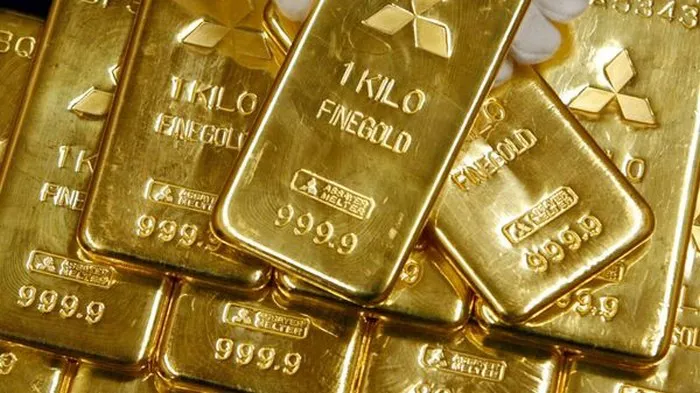Gold prices exhibited relative stability on Friday, maintaining their position near three-week highs. Investors were in anticipation of the nonfarm payrolls report due later in the day, which would provide further insights into U.S. monetary policy. In contrast, copper prices experienced an upswing thanks to positive factory data from China.
Gold had a strong performance earlier in the week, propelled by a series of lackluster U.S. economic indicators. This prompted speculation that the Federal Reserve would keep interest rates unchanged in September, which in turn weakened the U.S. dollar.
However, the greenback rebounded on Thursday following data indicating that personal consumption expenditures, the preferred inflation measure of the Fed, remained elevated in July, while personal spending exceeded expectations. This led to a consolidation of some of gold’s weekly gains.
As of the latest data, spot gold was trading at $1,940.14 an ounce, while gold futures expiring in December remained steady at $1,966.55 an ounce by 00:59 ET (04:59 GMT). Despite this stability, both instruments had experienced weekly gains ranging from 1% to 3%.
Nonfarm Payrolls Awaited, Impact on Markets
All eyes are now on the forthcoming nonfarm payrolls data for August. While expectations are for a slight decline compared to the previous month, the markets remain watchful for any potential surprises, given that payrolls have consistently exceeded expectations throughout the year.
Should there be signs of strength in the labor market, coupled with persistent inflation, it could give the Federal Reserve greater leeway and motivation to keep interest rates at their elevated levels. Although a rate hike in September is not anticipated, the central bank is expected to maintain high-interest rates for an extended period.
Rising interest rates have previously weighed on gold, as they increase the opportunity cost of investing in non-yielding assets. Gold’s short-term outlook continues to be overshadowed by expectations of sustained high rates.
Furthermore, stronger-than-expected inflation data in the eurozone also suggests higher rates in other major economies.
Nonetheless, gold may find some support if global economic conditions deteriorate amid persistently high rates. Recent U.S. GDP data indicated that the world’s largest economy was cooling off, despite avoiding a recession in the first half of the year.
Copper’s Rise Supported by China PMI and Stimulus
Turning to industrial metals, copper prices climbed on Friday, reflecting a private survey indicating unexpected growth in China’s manufacturing sector in August.
This private survey echoed government data from the previous day, which suggested that China’s manufacturing sector was inching closer to expansion, despite the official reading still indicating contraction.
The private survey, coupled with additional stimulus measures from Beijing, bolstered sentiment toward the world’s largest copper importer. China introduced more lenient mortgage requirements for its property sector and began reducing some deposit and reserve rates to enhance local liquidity.
Copper futures experienced a 0.5% increase, reaching $3.8525 per pound, and were set to record a 2.4% gain for the week.


